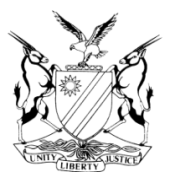REPUBLIC OF NAMIBIA

IN THE HIGH COURT OF NAMIBIA, MAIN DIVISION, WINDHOEK
RULING IN TERMS OF PRACTICE DIRECTION 61
Case Title: Alfred Clayton Plaintiff and Bradian Williams Defendant | Case No: HC-MD-CIV-ACT-DEL-2021/01779 | |
Division of Court: Main Division | ||
Heard on: 8 February 2024 | ||
Heard before: Honourable Mr Justice Usiku | Delivered on: 19 February 2024 | |
Neutral citation: Clayton v Williams (HC-MD-CIV-ACT-DEL-2021/01779) [2024] NAHCMD 63 (19 February 2024) | ||
Order: | ||
1. The plaintiff is granted leave to appeal to the Supreme Court. 2. The matter is postponed to 11 September 2024 at 15h15 for a status hearing on the outcome of the appeal. 3. The parties shall file a joint status report on or before 4 September 2024. | ||
Reasons for order: | ||
USIKU J: Introduction [1] This is an application by the plaintiff for leave to appeal to the Supreme Court against a costs order and judgment granted by this court on 18 August 2023. For the sake of convenience, I shall refer to the parties as they are cited in the main action. [2] On 18 August 2023, this court granted an interlocutory judgment in terms of which it, among other things, refused to grant the plaintiff: (a) a costs order de bonis propriis against the defendant’s legal practitioner; and, (b) a costs order against the defendant. [3] In this matter I am not going to set out the reasons given for the orders referred to above, as same are already outlined in the judgment delivered on 18 August 2023. [4] Unhappy with the aforegoing order, the plaintiff now seeks leave to appeal against that order to the Supreme Court. Application for leave to appeal [5] In brief, the grounds raised by the plaintiff for the appeal, are that the court erred and/or misdirected itself in the following respects, namely, in: (a) not applying the general principle that costs follow the event; (b) failing to grant a de bonis propriis costs order against the defendant’s legal practitioner in circumstances where such an order was justified; and , (c) not granting a costs order against the defendant on account that the defendant is a legally aided litigant. Opposition [6] The defendant opposes the application. The defendant has also raised a number of points in limine, including points to the effect that: (a) the plaintiff’s founding affidavit is defective in that it is premised on hearsay evidence and is vague; (b) the application for leave to appeal is improperly before court; (c) the application fails to set out prospects of success on appeal , etc. [7] I am of the view that the points in limine raised by the defendant have no merit and stand to be dismissed. It is not necessary to address all the points in limine herein. In the first instance, I am not persuaded that the application for leave to appeal is vague nor is it premised on hearsay. From the application, it is clear that the plaintiff seeks leave to appeal against the court order dated 18 August 2023 and the plaintiff has set out his grounds for appeal. Secondly, the defendant has not made out a case for his allegation that the application is improperly before the court. I am not persuaded that the application is improperly before court and that point in limine is dismissed. Furthermore, it is not correct that the plaintiff has failed to set out prospects of success on appeal. All in all, I find that there are no merits in the points in limine raised by the defendant and the points in limine are hereby dismissed. Analysis [8] The test in applications for leave to appeal is whether there are reasonable prospects that another court may come to a different conclusion. Generally, leave to appeal is granted where the court is of the opinion that the appeal would have reasonable prospects of success or if there are some good reasons why an appeal should be heard, including circumstances where there are conflicting judgments on the matter under consideration. [9] I have considered the ground raised in the application for leave to appeal including:
(c) the legitimate arguments expressed by the plaintiff herein, on the possible dangers posed by legally aided litigants litigating in an unbridled manner, in the knowledge that there are no adverse costs consequences. [10] Having taken account of the above considerations, I have come to the conclusion that there are good reasons why an appeal should be heard on the issues raised in the application. Furthermore, I am of the view that another court may come to a different conclusion on the issues in question. I therefore agree with the plaintiff that leave to appeal should be granted. [11] In the result I make the following order: 1. The plaintiff is granted leave to appeal to the Supreme Court. 2. The mater is postponed to 11 September 2024 at 15h15 for a status hearing on the outcome of the appeal. 3. The parties shall file a joint status report on or before 4 September 2024. | ||
Judge’s signature | Note to the parties: | |
B Usiku Judge | Not applicable | |
Counsel: | ||
Plaintiff: | Defendant: | |
F Pretorius Francois Erasmus & Partners, Windhoek | H Awaseb Awaseb Law Chambers, Windhoek | |